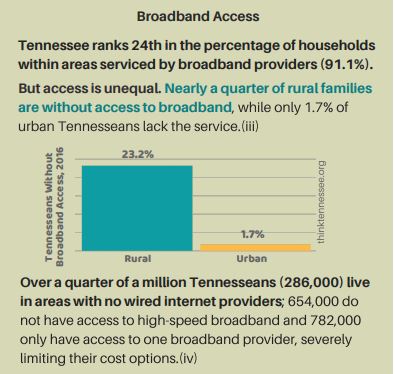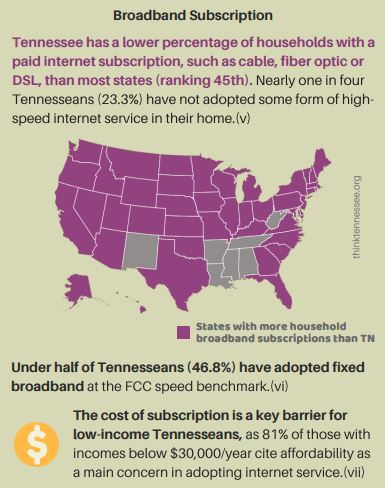This week, ThinkTennessee in partnership with the Center for Rural Strategies released a new policy brief that addresses Tennessee’s challenges in increasing broadband internet access and affordability, particularly for rural and low-income families.
According to the researchers, roughly a quarter of Tennessee’s rural families are without any kind of broadband access, while 23% of the total population reports that they lack a high-speed internet subscription.
“From the roads we drive on to the water we drink, public infrastructure powers our communities – and internet access is a key piece of that infrastructure,” said Shanna Singh Hughey, ThinkTennessee president. “Much like safe roads and clean water, all Tennesseans deserve access to the vast wealth of the internet.”
The report advocates for flexible solutions that can empower local communities to improve broadband access and affordability while meeting their unique needs and context. Some options, such as digital literacy programs, help address low subscription rates, while others, like a coordinated road repair and broadband installation policy known as “dig once,” help reduce costs and create additional access for underserved areas.
“The diversity of our great nation doesn’t stop at its big cities – it lives in the rural areas and small towns, too. And while that diversity enriches our communities, it also makes solving challenges like broadband complex,” said Whitney Kimball Coe, Director of National Programs with the Center for Rural Strategies. “There’s no one-size-fits-all solution to internet access and affordability, but if we create more pathways for providers, invest in local programs and emphasize efficient infrastructure deployment, we can improve the lives of thousands of Tennesseans.”









